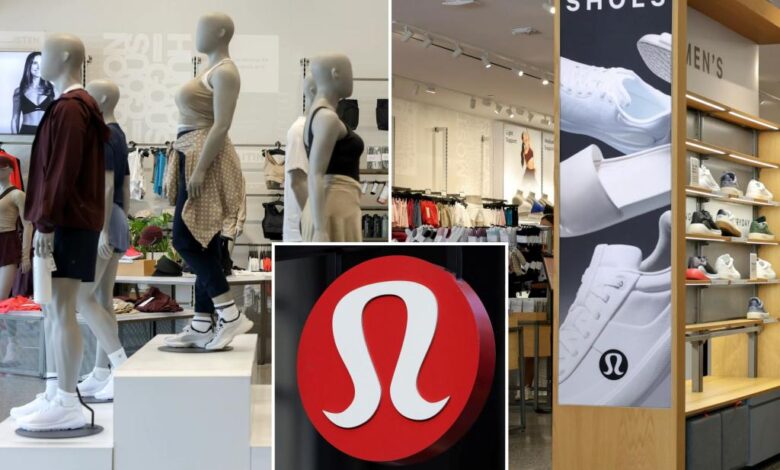Lululemon shares plummet as tariff costs, rivals threaten profit outlook

Lululemon has revised its profit forecast for the year downwards due to increased costs to offset US tariffs and lackluster demand for its latest products, failing to attract customers away from emerging athleisure competitors like Vuori.
Following the announcement, Lululemon Athletica’s shares plummeted by 22% in after-hours trading on Thursday.
In a statement, Lululemon attributed the lower store traffic in the Americas to economic uncertainty, inflationary pressures, decreased consumer confidence, and shifts in discretionary spending.
The ongoing global tariffs under President Trump’s administration have raised concerns about stagflation, prompting even affluent consumers to prioritize essential purchases.
To counter the impact of tariffs on margins, companies are diversifying their sourcing and implementing price hikes.
Lululemon’s CFO Meghan Frank stated that the company plans to implement strategic price increases on a small portion of its products, which will be modest in nature.
Additionally, Lululemon will engage in negotiations with suppliers and implement cost-cutting measures, as mentioned in a recent filing.
In 2024, 40% of Lululemon’s products were manufactured in Vietnam, with 28% of its fabrics sourced from mainland China.
The company now anticipates annual profits to fall within the range of $14.58 to $14.78 per share, compared to the previous forecast of $14.95 to $15.15 per share.
Lululemon also predicted second-quarter profits below the average estimate from LSEG, while its revenue forecast of $2.54 billion to $2.56 billion remained largely unchanged.
Despite introducing new apparel lines for both men and women, such as the Glow Up activewear collection and the lifestyle trousers Daydrift, these initiatives have not significantly boosted sales for Lululemon.
David Swartz from Morningstar noted that Lululemon has a track record of surpassing expectations, making the lack of raised estimates a disappointment in the eyes of investors.




